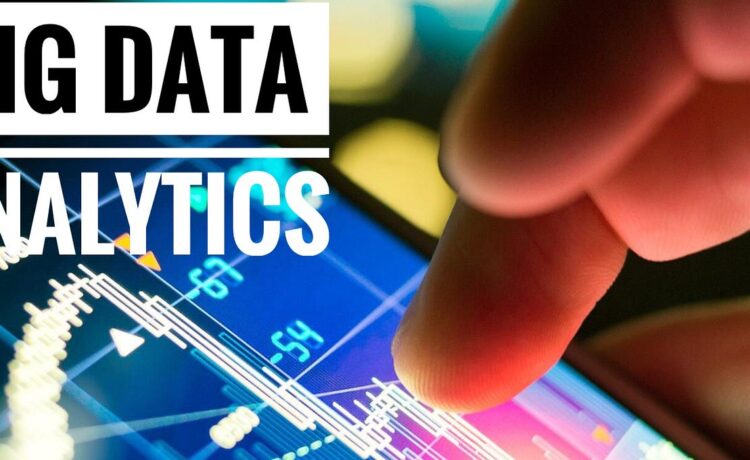Big Data and Analytics: Leveraging Data for Business Insights and Competitive Advantage
Introduction
In today’s data-driven world, businesses must harness the power of big data and analytics to stay competitive and thrive. By leveraging vast amounts of data, organizations can gain valuable insights, make informed decisions, and improve overall performance. In this article, we will explore the concepts of big data and analytics, discuss their benefits for businesses, and address the importance of data security and privacy.
The Power of Big Data
What is Big Data?
Big data refers to the massive volume of structured and unstructured data generated by various sources, such as social media, sensors, and transaction records. The sheer size and complexity of big data sets make traditional data processing techniques insufficient, requiring advanced tools and methodologies to extract valuable insights.
The Three Vs of Big Data
Big data is often characterized by the three Vs: volume, velocity, and variety. Volume refers to the vast amounts of data being generated, velocity refers to the speed at which data is generated and processed, and variety refers to the diverse types of data, such as text, images, and videos. These three factors contribute to the unique challenges and opportunities presented by big data.
Analytics: Turning Data into Actionable Insights
Analytics is the process of examining, transforming, and modeling data to draw meaningful conclusions and make data-driven decisions. There are three main types of analytics:
Descriptive Analytics
Descriptive analytics involves analyzing historical data to understand past trends and patterns. This type of analytics helps businesses identify strengths, weaknesses, and opportunities, as well as monitor key performance indicators (KPIs).
Predictive Analytics
Predictive analytics uses advanced algorithms and machine learning techniques to forecast future events or trends based on historical data. This enables businesses to anticipate customer needs, identify potential risks, and make proactive decisions.
Prescriptive Analytics
Prescriptive analytics goes beyond predicting future outcomes by suggesting specific actions to optimize results. By simulating various scenarios, prescriptive analytics can help businesses identify the best course of action for a given situation.
Benefits of Big Data and Analytics for Businesses
Enhanced Decision-Making
Big data and analytics provide businesses with the tools to make data-driven decisions, resulting in improved decision-making processes. By leveraging data, organizations can make informed choices based on facts rather than relying solely on intuition or gut feeling.
Improved Customer Experience
Big data and analytics can help businesses better understand their customers’ needs, preferences, and behaviors. By analyzing customer data, organizations can create personalized experiences, tailor marketing campaigns, and improve product offerings, ultimately leading to increased customer satisfaction and loyalty.
Streamlined Operations and Cost Savings
By leveraging big data and analytics, businesses can identify inefficiencies in their operations and uncover opportunities for optimization. This can result in streamlined processes, reduced costs, and increased productivity. For example, predictive analytics can help organizations optimize inventory management, minimizing stockouts and overstock situations.
Ensuring Data Security and Privacy
The Importance of Cybersecurity
As businesses increasingly rely on big data and analytics, ensuring the security and privacy of their data becomes critical. Data breaches can lead to significant financial and reputational damage, making it essential for organizations to implement robust cybersecurity measures.
Partnering with a Cyber Security Services Provider
Working with a reputable cyber security services provider can help businesses safeguard their data and maintain customer trust. These providers offer a range of services, such as vulnerability assessments, intrusion detection, and incident response, to help organizations protect their data and mitigate potential threats.
Conclusion
Big data and analytics have the power to transform businesses by providing valuable insights and facilitating data-driven decision-making. By leveraging these technologies, organizations can gain a competitive advantage, improve customer experiences, and streamline operations. However, businesses must also prioritize data security and privacy by implementing strong cybersecurity measures and partnering with a reliable cybersecurity services provider. By doing so, organizations can unlock the full potential of big data and analytics while maintaining the trust and confidence of their customers.






